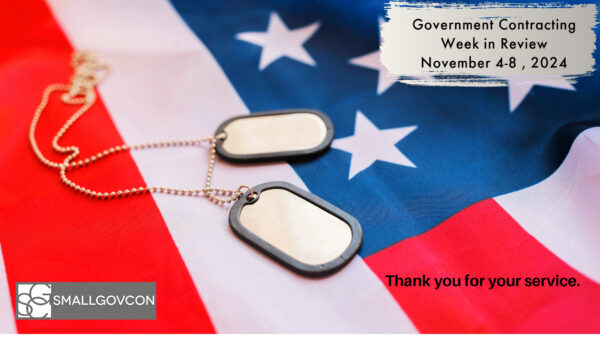
Happy Friday, SmallGovCon readers and have a great Thanksgiving next week! We won’t be posting our weekly roundup next week due to the holiday, but we’ll catch up on any missed news the following week.
In the meantime, enjoy this week’s federal contracting news. Also be sure to enjoy the family, friends, and food at your Thanksgiving table and maybe catch a football game. We will be back, with another edition of the week in review, in December. Some of the key stories this week including an update on small business past performance evaluation for affiliates, and updates on GAO bid protest stats.
Continue reading



